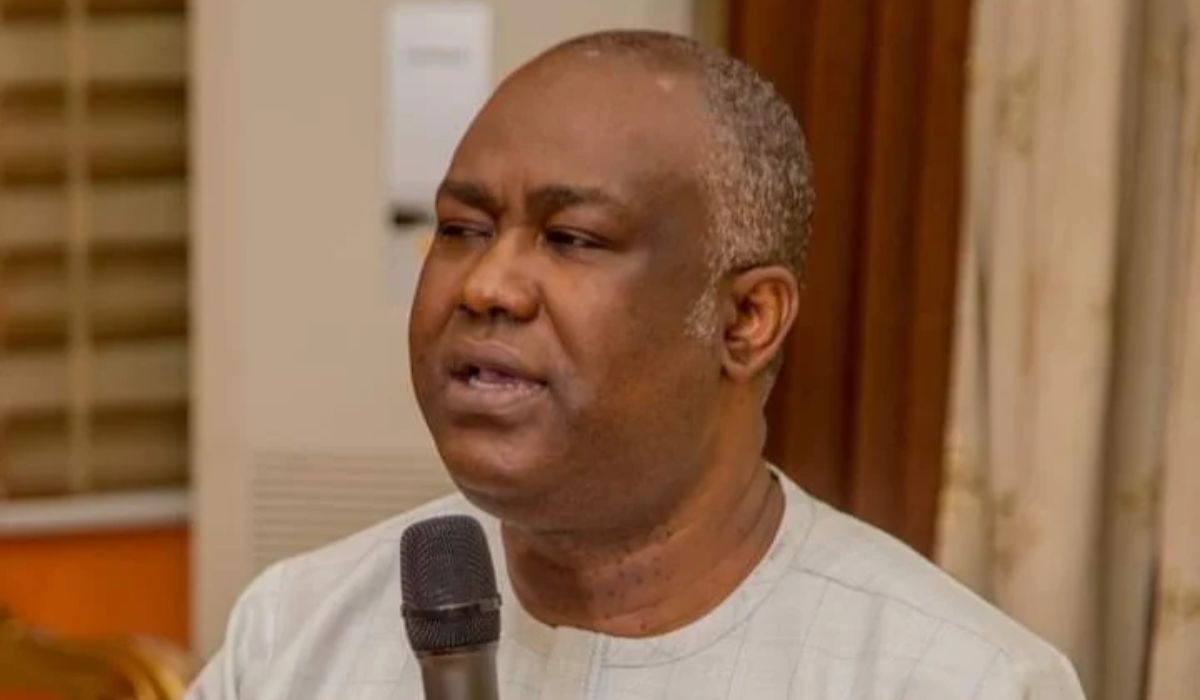
U.S. Rep. Val Hoyle, a second term member of Congress from Oregon who wants to ban lawmakers and their families from buying and selling individual stocks, is the latest member of Congress to violate a conflicts-of-interest and financial transparency law.
Hoyle, elected in 2022 to represent Oregon’s 4th District, was weeks or months late disclosing 217 individual stock trades by her husband, Stephen, according to an OpenSecrets review of Hoyle’s new congressional financial disclosure document.
The trades’ combined value: between $245,215 and $3,355,000. (Federal lawmakers are only required to disclose the values of their trades in broad ranges.)
Among the dozens of corporate stock transactions Hoyle was late reporting: those of Google parent Alphabet, Amazon.com, Apple, Bank of America, Costco, CVS Health, ExxonMobil, FedEx, Goldman Sachs, Hilton Worldwide, Johnson & Johnson, JP Morgan Chase & Co., Marriott International, Facebook parent Meta Platforms, Microsoft, Netflix, NVIDIA, Oracle, Target, Uber, UnitedHealth Group, Visa, Walt Disney Company, Wells Fargo and defense contractors Lockheed Martin and Northrop Grumman.
The Stop Trading on Congressional Knowledge Act requires federal lawmakers to publicly disclose any individual stock, bond or cryptocurrency trade within 45 days of making it. The STOCK Act also extends insider trading restrictions to members of Congress.
There is no evidence Hoyle engaged in any prohibited transactions. But several of the stock trades Hoyle reported involved companies within industries that ostensibly fall under the jurisdiction of the House Transportation and Infrastructure Committee and the House Natural Resources Committee, on which Hoyle serves.
These include airplane maker and defense contractor Boeing, travel website Booking Holdings, Canadian Natural Resources Limited, Deere & Company, Eaton Corporation and Knight-Swift Transportation Holdings.
In a message to the clerk of the House of Representatives, Hoyle stated that the late-reported transactions “were made by my spouse’s financial broker and were not specifically requested by me or my spouse. I have now implemented thorough procedures to confirm that my financial disclosure preparer will be notified of all transactions in a timely manner.”
Separately, Hoyle wrote in an email Wednesday to OpenSecrets: “I acknowledge I missed the reporting deadline … the American people deserve transparency when it comes to the finances of members of Congress.”
In her email, Hoyle explained that the company her husband works for ended its employer-sponsored pension program last year. His retirement savings transitioned into an individual retirement account, she said.
“His new financial adviser purchased individual stocks without any direction from either of us,” Hoyle said. “I only learned of the stock transactions last week. The reports we filed disclose all reportable transactions through August 2025. Going forward, we remain committed to having our filings be accurate and up to date.”
Hoyle’s congressional office confirmed that the congresswoman has paid a $200 penalty for her late disclosures — the standard fee for a first-time STOCK Act violation.
Last week, government and politics news site NOTUS reported that Hoyle was among five members of Congress who were weeks late in filing their most recent mandatory annual financial disclosure reports, which provide the public with a broad overview of lawmakers’ assets, income, business ties, contractual obligations and debts.
Hoyle filed her 2024 annual disclosure on Friday following the publication of NOTUS’ article.
She is part of a bipartisan coalition of lawmakers who want members of Congress, their spouses and dependent children to stop buying and selling individual stocks to defend against insider trading and curb financial conflicts of interest, be them real or perceived.
Hoyle this year is a co-sponsor of the TRUST in Congress Act and the Stop Politicians Profiting from War Act of 2025, the latter of which would ban federal lawmakers and their immediate family members from owning most defense industry stocks.
Earlier this month, Republican and Democratic House lawmakers consolidated several stock-ban bills into one measure — the Restore Trust in Congress Act — which they’re pushing to receive a vote on the House floor.
Numerous other members of Congress have also violated the STOCK Act and federal transparency law during 2025 with improper personal financial disclosures, many of which involve individual stock trades.
Like Hoyle, Democratic Reps. Debbie Wasserman Schultz, Dwight Evans, Jamie Raskin, Chellie Pingree, Shri Thanedar, George Whitesides, Ritchie Torres, Jonathan Jackson, Donald Norcross, Tom Suozzi, George Latimer and Jared Huffman have violated federal personal financial disclosure laws this year.
On the Republican side, Sen. Markwayne Mullin and Reps. Dan Meuser, Lisa McClain, Austin Scott, Neal Dunn, Scott Franklin, Brandon Gill, Hal Rogers, Tim Moore, Troy Nehls and Tony Wied have violated financial disclosure laws.
Dave Levinthal is a Washington, D.C.-based investigative journalist. He served as OpenSecrets’ editorial and communications director from 2009 to 2011.



